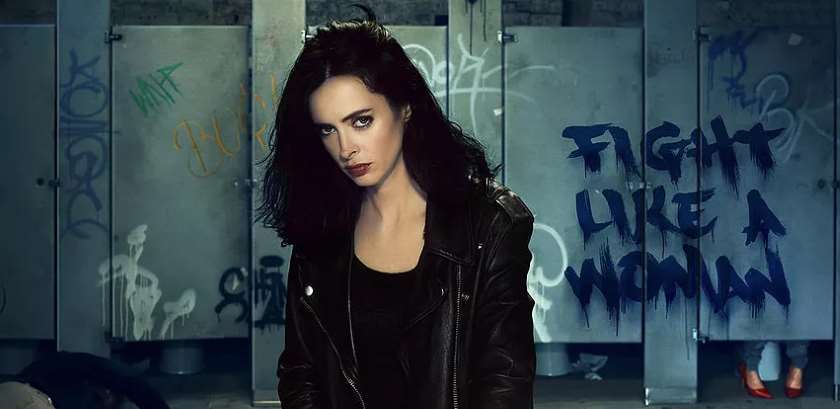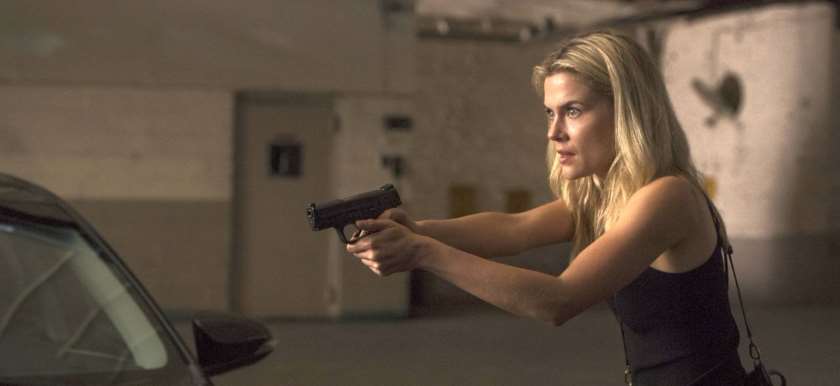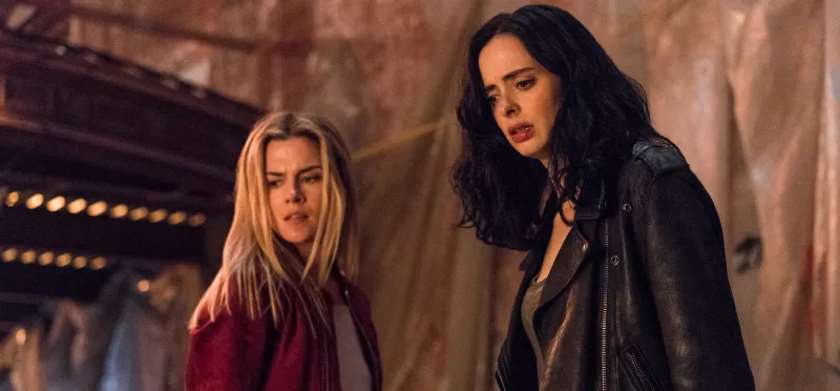Jessica Jones Season Two

Control. A simple word that manages to capture the entirety of Jessica Jones season one. The fear of losing control. The terror of all control being relinquished to another’s will. The obsession with maintaining control. The fight to seize back control of yourself and your life.
Every character in the show had their own struggle with and approach to control. By so thoroughly exploring these ideas, it allowed Jessica Jones to elevate itself beyond common television and become a model of Netflix’s potential for long-form story-telling. True, Daredevil’s first season accomplished a similar task, but not so tightly woven as Jessica Jones had managed to.
Unfortunately, you can’t really summarize the themes of season two so succinctly. If I had to choose, I’d say the idea behind the story arc was “the lies we tell ourselves”... or perhaps it’s actually “the monster within us”? Most likely it’s both. Rather than explore a singular concept with each character, it’s an exploration of two separate traits that all of its characters share.
“The monster within us” is the angle that gives me cause for concern. It is all too common in Western long-form entertainment to focus on heavily flawed characters that only become more reprehensible as the story progresses. The writers seem to lack confidence that the audience will maintain interest unless they gasp and exclaim “they did not!” aloud at the television. The only character that seems saved from this descent is the titular Jessica Jones herself, faced with the question of her own monstrous capabilities.
Killing her abuser in the first season was not the healing salve for her soul. He may not haunt her in the physical world, but his blood remains stained upon her hands. Old problems are not easily solved, they simply take new form.
Jessica is not the only one struggling. Her neighbor and regularly fired assistant Malcom continues trying to fill the void left behind by his drug addiction. Her involvement with the prior season’s events have led Jessica’s best friend Trish Walker to find some greater use of her celebrity to make a difference. The conclusion of the first season did not fix everyone’s problems. They merely introduced new struggles.

That these struggles feel so true to life is perhaps why they work as well as they do. Often times it feels like a character must either regress and repeat mistakes or simply stumble upon an all new manufactured obstacle to overcome. Season two of Daredevil is a good example of how this sort of continuation was screwed up. What I personally loved about the first season was Matt Murdock’s conflict between his violent tendencies and religious beliefs. The ultimate question came whether he should kill Fisk and condemn his own soul, or if he could somehow find a separate solution.
Frank Castle was a suitable antagonist to Matt. A man free of the restraints of religious morality or obligation, he was able to seek a more permanent solution to stopping criminals. Where Wilson Fisk was a physical menace, Frank represented a philosophical one. It was the next logical step for Matt Murdock’s character to go.
Then they introduced Elektra and Matt’s primary antagonist became his own penis. Silly, manufactured drama that harmed the character rather than developed him.
Jessica Jones stumbles here or there in regards to its own plot and character development, certainly, but never does it contradict or violate what’s already been established. Trish Walker is perhaps the only character you can argue who has suddenly taken too downward a turn, revelations about her relationship with Jessica painting her in a negative light. I would disagree, as I imagine Trish’s path was planned from the start. Perhaps the location of point C was known before they even managed to plot the path from point B, but the writers knew where they were going with Trish Walker.
Sadly I cannot really explain without giving certain elements of the narrative away, but we already see that Trish has never psychologically recovered from her mother’s domineering personality in the first season. What might such a young woman feel next to a super-powered adopted sister? How might the powerless perceive the powerful?

The show answers this question logically, and it answers it by tying into everyone else’s own struggles. Perhaps you could add “the hauntings of the past” to the list of themes, with some ghosts being more immediate than others.
Jessica Jones as a whole is the best show that Marvel has released on Netflix, and I would not be surprised if it is one of the best television shows produced in America altogether. I’ve also watched the second seasons of Luke Cage and Iron Fist, and while each of those has improved over their prior seasons’ flaws, neither achieves the quality of story-telling of either season of Jessica Jones.
Which is also what makes me nervous for the future of the show. As I’ve stated previously on this site – and no doubt will continue to do so for years to come – Western television is obsessed with running as long as possible. While the Netflix streaming model makes it easier for the showrunners to tightly construct narrative themes and concepts made more difficult by the weekly Cable model, it becomes all too easy for characters and their arcs to become either monotonous and repetitive or a snarled knot of contradictions.
Perhaps what also saves Jessica Jones is the fact that it stands well enough on its own. Aside from some mentions of the incident in New York during The Avengers, you can watch both seasons of Jessica Jones without spending a single minute on another Marvel property. Even The Defenders seems insignificant, with not a single character making mention of the events of that crossover.
So what happens when Marvel seems more intent on crossing the properties over more radically? When cameos are forced into the narrative for an episode or two regardless of how they fit into the grander scheme of themes?
I suppose I’ll address those seasons as they come. For now, however, Jessica Jones is perhaps my favorite Western television show in years, my favorite one currently running, and most certainly the best of Marvel’s Netflix line-up. If anyone can maintain that level of quality for a third season, I believe it is this creative team. I just hope everyone involved knows when to put it to rest.


